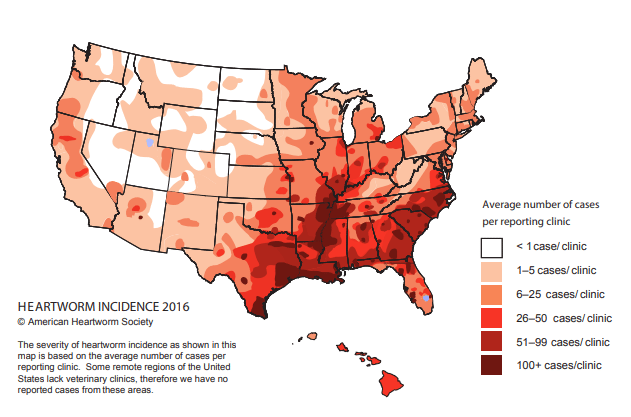When it comes to heartworms in dogs, local veterinarian and former president of the American Heartworm Society Wallace Graham says there are plenty of misconceptions.
“The biggest misconception is that, if my dog spends most of its time inside, it does not need to be protected against heartworms,” Graham said.
But, according to the American Heartworm Society, the fatal disease is fairly common in states like Texas, and continue to rise over the years.
“It’s common because we have mosquitoes and we have a very warm climate,” Graham said.
Corpus Christi sees between 26-50 cases of heartworms per clinic per year, according to the American Heartworm Society.

Whether you pup has been with you your entire life or has become a new family member, checking for heartworms should be a part of its yearly checkup.
One dog owner, who just moved to Corpus Christi, says she wanted to adopt a dog for her young boys.
“My son has a little bit of anxiety, and we’re the new people here in Corpus Christi, and starting school, so anxiety was a little bit high,” Danielle Jones-Higginbottom said. “So, we we went to the shelter to see if he could find a new friend and he found our dog Fifi.”
Fifi was recently featured in KRIS 6 News’ Pet of the Week, through Animal Care Services.

After a recent checkup at the veterinarian, Jones-Higginbottom found out that Fifi tested positive for heartworms. But the medication for one month was $300. Although her owner is trying to find a cheaper option, “she’s ours, regardless we’re gonna pay whatever it has to be to help her out.”
Many veterinarians say that the best way to avoid heartworms, and the high costs of medication, is with simple prevention.
“Make certain that your dog gets protection 12 months a year,” Graham said. “Even though we think we don’t have mosquitoes in the winter time here, we occasionally do. And so it’s very, very important – 12 months of protection, every year.”
For more information on heartworms, visit www.heartwormsociety.org

